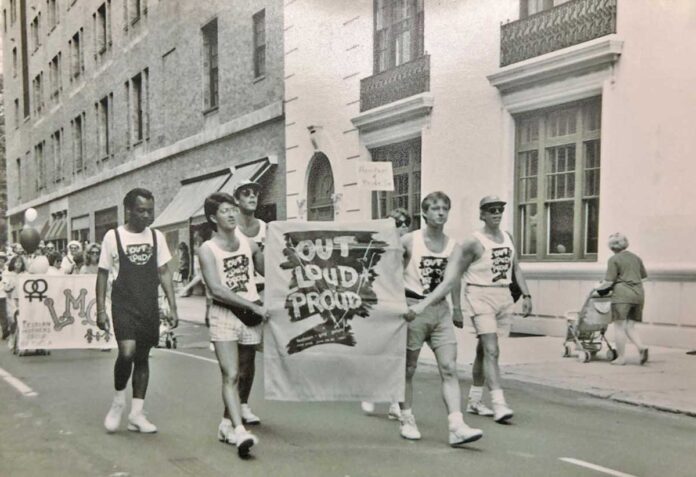Happy 4th of July. Yep, you’re reading that correctly. Or maybe I should say Happy St. Patrick’s Day? Those holidays, that joyfully celebrate a community, are what Pride was beginning to look like until this year. I’m sure you can guess what has changed. Stick with me.
Consider this: many in our country have special days to celebrate their heritage, culture, religion, or community. We even have a national holiday just to celebrate us being American. Likewise, we in the LGBT community have that as well. Our holiday is called Pride.
How we commemorate Pride depends on where you live, and that is not only in the U.S. but around the world, since Pride has become global since that first one in 1970.
In recent years, Pride was used to help get people excited and not only celebrate, but drum up support for marriage equality or nondiscrimination. In other nations (and here, too) Pride is used as the one day a year that the community gathers and marches. In many places, sadly, Pride is so dangerous that people have to do so under police guard. I admire these activists bringing visibility to their country. They truly know the meaning of Pride. Other countries have literally banned Pride, among them Turkey and Russia, where LGBT activists are jailed unjustly.
The U.S. Department of State has suggested to its Ambassadors that they fly rainbow flags on their embassies for Pride Month in June. Even in countries that ban LGBT Pride, having those flags outside just one building will give hope to people who simply walk by to see those flags. It allows them to hold pride just for that one moment and dream. Many of the U.S. embassies around the world have Pride receptions inviting the LGBT community to gather under their safe roof. That is a national program that gives me great pride in our national values.
And while Pride in the U.S. has been mostly celebratory, there are those who feel it has to be more political, and for good reason. In some areas in this country, we can celebrate the gains we’ve made, but unfortunately there are still other places in America where fearful hate mongers are attempting to silence us to the point that our community becomes invisible. Simply put: they don’t want us to be out. They want us back in hiding.
The best example is Florida, where some organizations have actually canceled Pride because they’re worried that the new “Don’t Say Gay” laws will put them in legal jeopardy. It is a shock and sadness to me that today’s Pride celebrations are being canceled due to dangers of right-wing people committing violence.
Let’s recall Pride’s roots: Pride was founded to make us visible. That is why in 1970 we marched out of our village ghetto and then across New York City to Central Park. We were going to do it with or without a permit. We had prepared for violence by giving our marshals self defense lessons among other things. But on the day, when we turned out in the thousands, no one, including the police, tried to stop us.
Pride will happen this year even in those places in this county where it has been canceled. Like U.S. embassies around the world who will fly rainbow flags in countries where we are invisible, the same acts of Pride will take place here, in Florida, Texas, and in every state in the union. You will see Pride flags and Pride gatherings, even if it’s not the huge one you might be used to. And those small acts are vital, because they stop us from being invisible in places where unkind people want us to disappear. We will not be invisible ever again.
You can’t stamp out St. Patrick’s day, you can’t stamp out the 4th of July, and dammit, we won’t allow you to stamp out Pride!
